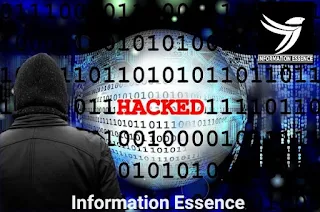Protecting Yourself from Hacking:
Tips and Tricks
protecting yourself , In today's digital age, it is more important than ever to protect yourself from hacking. Hackers can gain access to your personal information, financial accounts, and even your identity, causing significant damage to your life and finances. In this article, we will explore some tips and tricks for avoiding hacking and protecting yourself from its harmful effects.
Understand the Risks of Hacking
The first step in protecting yourself from hacking is to understand the risks. There are several types of hacking, including phishing, malware, and social engineering.
Phishing involves sending emails or messages that appear to be from a legitimate source, such as a bank or social media website, to trick you into providing your personal information.
Malware is software that is designed to damage your computer or steal your information.
Social engineering involves manipulating people into divulging their personal information or performing actions that are not in their best interest.
Protect Your Passwords
One of the most important steps in protecting yourself from hacking is to protect your passwords. Use unique, strong passwords for each of your accounts, and avoid reusing passwords across multiple accounts. Use a combination of letters, numbers, and symbols to create a strong password. You can also use a password manager to generate and store your passwords securely.
Keep Your Software Up to Date
Another important step in protecting yourself from hacking is to keep your software upto date. This includes your operating system, web browser, and any other software or applications you use. Hackers often exploit vulnerabilities in outdated software to gain access to your system. Make sure to install updates and patches as soon as they become available to ensure that your system is protected from the latest threats.
Be Cautious of Emails and Messages
Hackers often use emails and messages to trick people into providing their personal information or downloading malware. Be cautious of any emails or messages that ask for your personal information or that contain suspicious links or attachments. Always verify the sender's email address and be wary of unsolicited messages, even if they appear to be from a legitimate source.
Use Two-Factor Authentication
Two-factor authentication is an extra layer of security that requires you to provide a second form of identification, such as a code sent to your phone, in addition to your password. This can help protect your accounts from unauthorized access, even if your password is compromised.
Be Careful on Public Wi-Fi
Public Wi-Fi networks can be a hotbed for hackers, as they often lack proper security measures. Avoid accessing sensitive information, such as your bank account or email, while on a public Wi-Fi network. If you must access sensitive information while on a public Wi-Fi network, use a virtual private network (VPN) to encrypt your data and protect your privacy.
Conclusion
In conclusion, protecting yourself from hacking is essential in today's digital age. By understanding the risks, protecting your passwords,keeping your software up to date, being cautious of emails and messages, using two-factor authentication, and being careful on public Wi-Fi, you can significantly reduce your risk of being hacked. Remember to always stay vigilant and take the necessary precautions to protect your personal information and identity. By doing so, you can enjoy the benefits of the digital age without the fear of falling victim to hacking and its harmful effects.
Thank you for reading we hope that you have got information that you need and looking for...
To receive all new and exclusive, follow us on our Telegram channel


Comments
Post a Comment